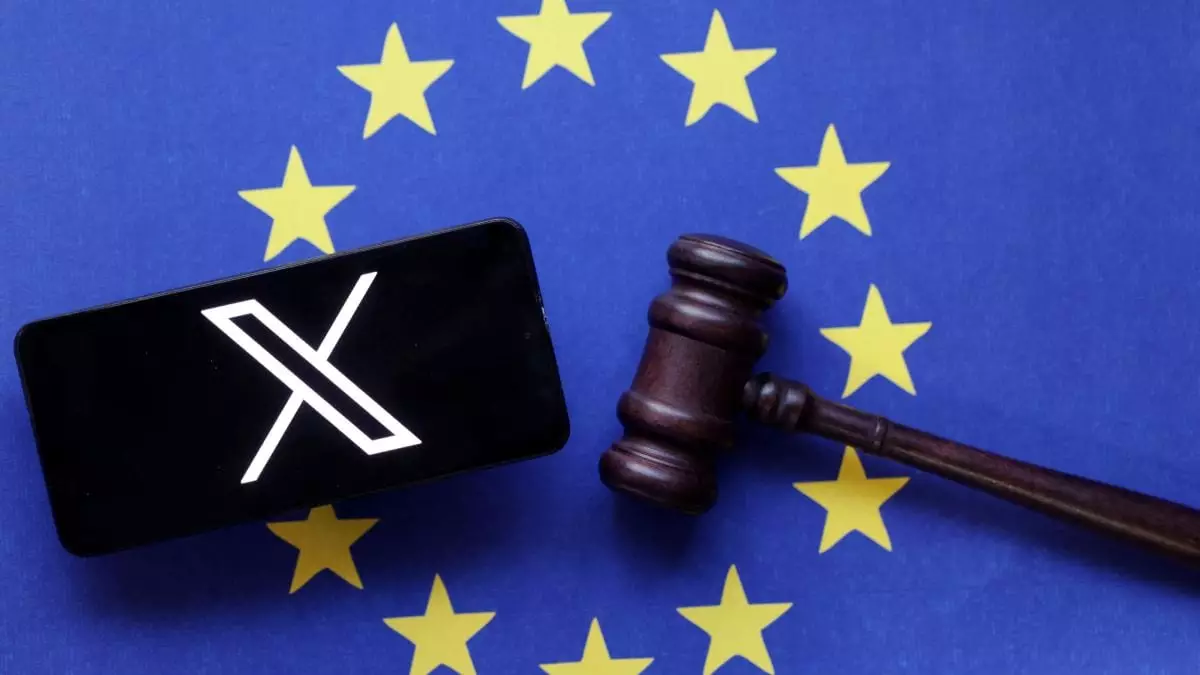As the digital landscape continues to evolve, so too does the responsibility of tech giants. The European Union (EU) is intensifying its investigation into whether Elon Musk’s social media platform, X, has violated stringent content moderation guidelines established under the Digital Services Act (DSA). This examination shines a spotlight on the complexities of regulating digital platforms while balancing free speech, misinformation, and foreign electoral interference.
The European Commission initiated formal proceedings against X in December 2023, accusing the platform of neglect in addressing illegal content and misinformation. The DSA provides a structured framework for addressing these issues, emphasizing transparency and accountability. Henna Virkkunen, the Commission’s Executive Vice President, suggested that the current scope of the investigation may be expanded to include new allegations, raising concerns about the platform’s commitment to upholding its responsibilities.
Given the high-profile nature of Musk, who is not only a billionaire entrepreneur but also an influential figure in global politics, the inquiry has gathered significant attention. His recent support for far-right candidates, particularly his endorsement of Alice Weidel from the Alternative for Germany party, has further complicated the narrative, prompting questions about the potential misuse of algorithms for political gain.
The timing of the investigation coincides with a critical moment in European politics, notably the upcoming snap elections in Germany. Following Musk’s live-streamed conversation with Weidel, the EU Commission is probing whether such interactions were artificially amplified on the platform, thereby violating the DSA’s stipulations. Allegations of bias or preferential treatment in social media platforms take on heightened importance, especially in the context of potential foreign interference inspired by past incidents.
The Italian municipal elections and Romania’s recent presidential election, which was annulled amid claims of Russian interference, have set a concerning precedent, amplifying fears about the integrity of democratic processes in Europe. In this atmosphere, scrutinizing platforms like X is not merely about enforcing rules; it’s about safeguarding democracy.
The consequences for X and similar platforms found in violation of the DSA are significant. Penalties can reach up to six percent of a company’s global yearly revenue, a considerable financial deterrent. With the political landscape shifting and external pressures mounting, this has created a tense standoff between EU regulators and major tech firms. The EU’s ambition for regulatory oversight is invariably at odds with the interests of these companies, who argue that they are being unfairly targeted.
Musk’s past conflicts with EU regulations serve as a harbinger of potential legal battles ahead. His vocal opposition to EU scrutiny raises the stakes for both the platform he oversees and the regulatory bodies aiming to enforce compliance. Such confrontations highlight the struggle between regulatory bodies looking to deter transgressions and tech companies pushing back against what they view as overreach.
The current environment has not only influences X but also reverberates through the tech industry at large. Major figures like Mark Zuckerberg of Meta have expressed concerns about the fairness of targeting US companies with hefty fines, framing it as an economic protectionist measure akin to tariffs. Zuckerberg’s public call for the US government to protect domestic digital enterprises underscores the broader implications of this regulatory conflict.
As Washington prepares for the inauguration of President-elect Donald Trump, speculation arises regarding how new administration dynamics will impact EU tech relations. Trump’s stance on technology and trade could effectively alter the regulatory landscape and the EU’s ability to enforce compliance among US-based platforms.
The European Union’s scrutiny of Elon Musk’s X highlights a pivotal moment in the intersection of technology, politics, and regulation. As social media continues to shape public discourse and influence political outcomes, the task ahead for regulators is immense. Striking an equilibrium between fostering innovation and enforcing responsible governance will be necessary in ensuring that these digital platforms contribute positively to democratic values and do not undermine them.
As the investigation unfolds, stakeholders on all sides must engage in a transparent dialogue to navigate the complexities of digital governance, ensuring that freedom and accountability coexist in an increasingly interconnected world. This incident serves as a crucial reminder of the challenges regulators face and the urgent need for a cooperative international framework to govern digital spaces.


Leave a Reply